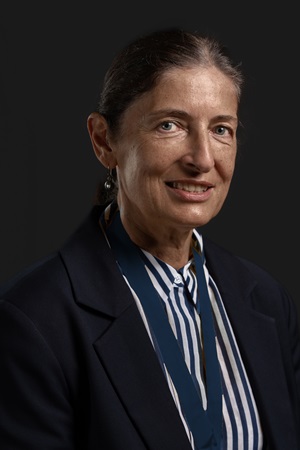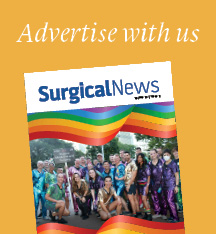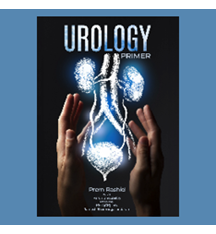2023 | Volume 24 | Issue 2
President's perspective

Dr Sally Langley
I will be handing over the presidency to Associate Professor Kerin Fielding in May 2023. I know that Kerin is excellent for this role, having worked across education and professional standards, and is particularly passionate about our strategic priorities, including serving our rural population.
During the last few years our communities have been through a series of crises in both countries: fires, floods, earthquakes, volcanic eruption, shootings, and of course the pandemic. We are also seeing the effects of climate change on our environment. These major crises have affected our surgical lives. Many surgeons were unable to work or worked less during the pandemic, with some specialties and regions more impacted than others. Thank you for being patient, adapting and learning during this time.
My presidency has spanned the pandemic with lockdowns and a period of no travel. In some ways it was a virtual presidency during my first year and then coming out of the pandemic during the second year with increased travel and in-person meetings. I appreciate that the pandemic has resulted in something I really wanted—our increased use of videoconferencing. That will stay with us now since many of our committee meetings simply require our attendance. However, we do value some personal contact where we meet and talk with each other and develop ideas far better. For me the latter has been meetings such as the Tri-nations conference in Sydney in March and the Council of Presidents of Medical Colleges (CPMC) in Australia and the Council of Medical Colleges (CMC) in Aotearoa New Zealand.
RACS is seen as a leader in the development of a respectful workplace culture. We are not alone. The other medical colleges are ready to look at cultural change as are other professions.
This leadership role has surprised me—it was unexpected, but I was prepared for it. I was well supported at home by my husband, sister, whānau (family) and friends, and in my mahi (work life) as a plastic surgeon by my plastic surgical colleagues and manager at Te Whatu Ora Waitaha. My personality and style have been to listen, understand, seek knowledge and be informed. I thoroughly consider things, pause and hopefully I am part of making good decisions. I have strived to live the RACS values and the aspiration described in our 2022 Building Respect, Improving Patient Safety Action Plan of being a compassionate, collaborative and inclusive leader for all.
It saddens me that I continue to hear of incidents of unprofessional behaviour—sexual advances, bullying, undermining, preferencing and microaggressions. We must bring these bad practices to a halt. We must look at ourselves and those we work with; speak up and lodge complaints or notifications with RACS and the hospital or relevant jurisdiction when we hear of or witness this. Have the ‘cup-of-coffee’ conversations. No one should feel uncomfortable anywhere, let alone the workplace.
RACS is seen as a leader in the development of a respectful workplace culture. We are not alone. The other medical colleges are ready to look at cultural change as are other professions. I recommend that all of you make yourselves familiar with the second expert advisory group report and the latest action plan on our website. RACS continues to work on bias and racism.
Related to this is wellbeing. We continue to go through stressful times. Medical work is stressful, and we are seeing increasing concerns about the wellbeing of healthcare workers and burnout. RACS along with other colleges has developed the Wellbeing Charter, available on our website and now endorsed by CPMC, CMC and other groups. The pandemic, in particular, has affected all of us and we must reach out to each other. Kōrero (talk) to each other and be a friend and a mentor.
During my presidency, RACS has played a key role along with the Australian Society of Plastic Surgeons, the Australasian Society of Aesthetic Plastic Surgeons, and the Australian Society of Otolaryngology Head and Neck Surgeons in exposing the unsafe practices of cosmetic surgery done by medical practitioners who are not trained surgeons. Our patients expect surgery to be done by surgeons who are fully trained to the Australian Medical Council (AMC) specialist accredited standards—surgeons who have not only learned technical and medical skills, but also our 10 professional skills and competencies. We are nearly there with limiting the use of the title ‘surgeon’ to the AMC accredited surgeons.
We continue to advise on the high standards required to deliver safe surgery whether it is ‘cosmetic’ or not and our opposition to the proposed ‘area of practice endorsement’. This is really an ethical issue. We should only undertake work we are appropriately trained to do. Our patients trust us to behave ethically. A significant body of work on the cosmetic surgery submissions has been done by the RACS policy and advocacy team, which has developed as an important area of work for the College.
I am pleased to welcome new and continuing RACS council office bearers and office holders. RACS Council has a highly experienced group, all with extensive portfolio experience, representation of all specialties and all states and territories of Australia though there will be fewer councillors from Aotearoa New Zealand. This needs to be remembered when our Fellows seek nomination for Council later in the year.
I strongly recommend involvement with RACS as a committee member, councillor, course educator or facilitator, and as an examiner. Talk to colleagues, make a career plan (that is my husband talking), work out what might fit with your work and family in particular, and put your name forward for nomination. Keep an eye on Fax Mentis and Surgical News magazine. As a councillor you will extend your interests and broaden yourself as well as contribute to the future of surgery. There is a place on Council for all types of people and personalities. You don’t have to be the extroverted person who expresses opinions on everything. RACS Council needs both experts and generalists who can take on any portfolio or project. Following my time on Council I will contribute to the governance of my own public hospital department and return to some clinical work. With the experience I have gained and the health system knowledge, I hope to contribute to the new health system in Aotearoa New Zealand.
I thank John Biviano and the staff of RACS in both our countries for their support during my presidency. I make a particular mention of Justine Petersen, RACS Aotearoa New Zealand manager, who is retiring in May after more than 27 years working with Fellows, Trainees, Specialist International Medical Graduates, and aspiring surgeons. Thank you for your years of service and best wishes for the future, Justine.
While I am sad to finish this role, I will be watching with interest as the ongoing strategic projects develop. Kia ora.

